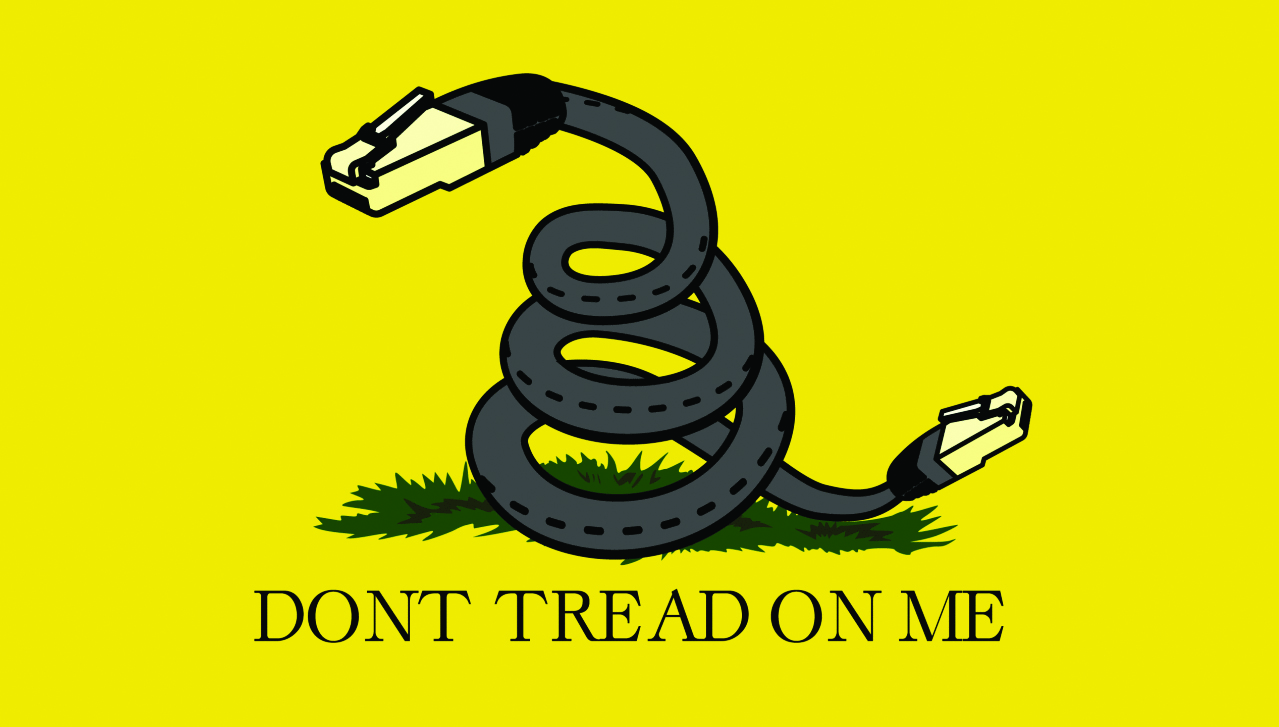By now you have probably heard of the coming end of the Obama-era “net neutrality” F.C.C. regulations. You have probably seen messages on popular websites warning you about the end of net neutrality. Your Facebook feed is probably cluttered with posts saying if you’re not freaking out about net neutrality right now, you’re not paying attention. Disregard this alarmism: repealing these regulations can only mean a better internet experience for us, the consumers.
The F.C.C.’s net neutrality regulations require Internet Service Providers, or ISPs, to treat all internet traffic equally. It does this by classifying the internet as a public utility under Title II of the Interstate Commerce Act of 1887, originally written to regulate 19th Century railroads. The most common argument against repealing these regulations states that without them, ISPs will be able to slow down or block websites they don’t like. They will be able to prioritize certain websites that can pay more for faster service, while relegating other websites that cannot afford premium speeds to the internet “slow lane.”
This scenario may seem frightening, giving conglomerate corporations the power to effectively censor the internet. However, the Obama administration only imposed these F.C.C. regulations in February of 2015. Before then, ISPs had nothing stopping them from playing favorites with internet traffic, yet hardly any examples exist of them doing so. In the rare cases in which ISPs have violated net neutrality principles, a combination of bad press and the threat of losing customers to their competitors forced the ISPs to stop- no government intervention required.
However, what if the ISPs don’t run the risk of losing customers? What if they have a monopoly or duopoly, as is the case in several states and municipalities? This is indeed an issue, but it is one caused by government in the first place. These state and local governments only allow for one or two ISPs to operate in their jurisdictions because of several arbitrary fees, stifling competition. ISPs that can afford to jump through the state or local government’s hoops are the big guys like Verizon and Comcast. Smaller, and possibly better, would-be competitors cannot. Government caused this problem, therefore more government is not the solution.
Since repealing net neutrality has no plausible downsides, what are the advantages? According to free-market economist Jeffrey Tucker, the fact that internet conglomerates such as Google, Amazon, Facebook, Reddit, and Netflix are against the repeal should be a clue. With net neutrality in place, they do not have to pay any additional cost for their high-bandwidth content. It forces the ISPs to foot the bill, even though these websites are among the most popular in the United States, according to statistics from Amazon itself. It turns out that these websites already get priority over others, but we have net neutrality, not ISPs, to blame.
Without net neutrality regulations, ISPs would be able to either charge their consumers higher prices to use these sites, or ask for these internet giants to pay for the extra bandwidth they occupy. The former is an unattractive option for both the ISPs and the websites since consumers will not want to pay more, incentivizing them to switch to a competing ISP and internet service. The latter is a more likely outcome that will stifle these conglomerates’ domination of the internet. If greedy corporations like Google, Amazon, and Facebook really want to stay on top of their respective industries, they’ll have to pay up. Otherwise, we are free to take our business elsewhere.



